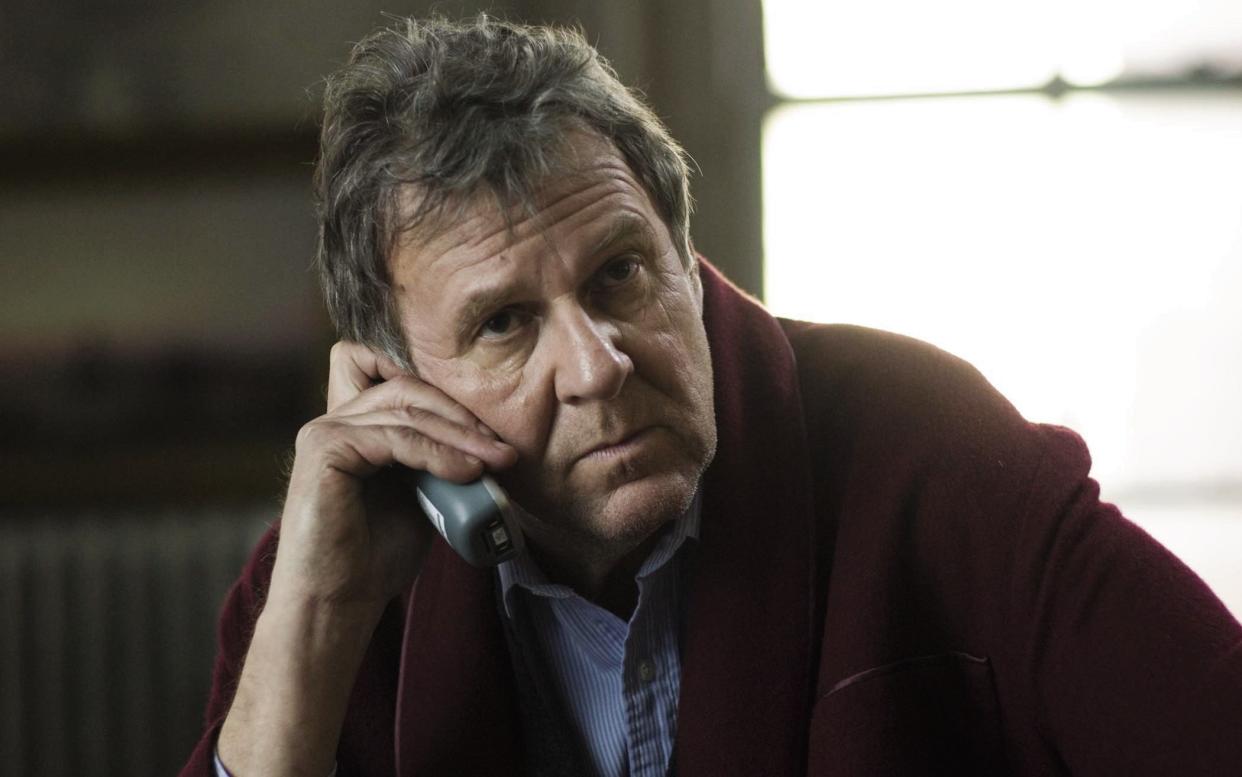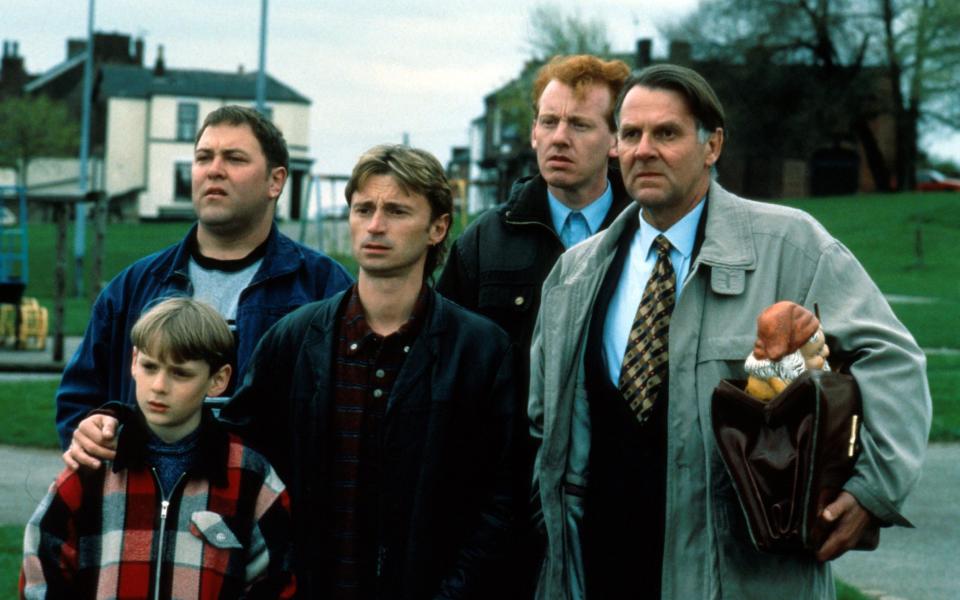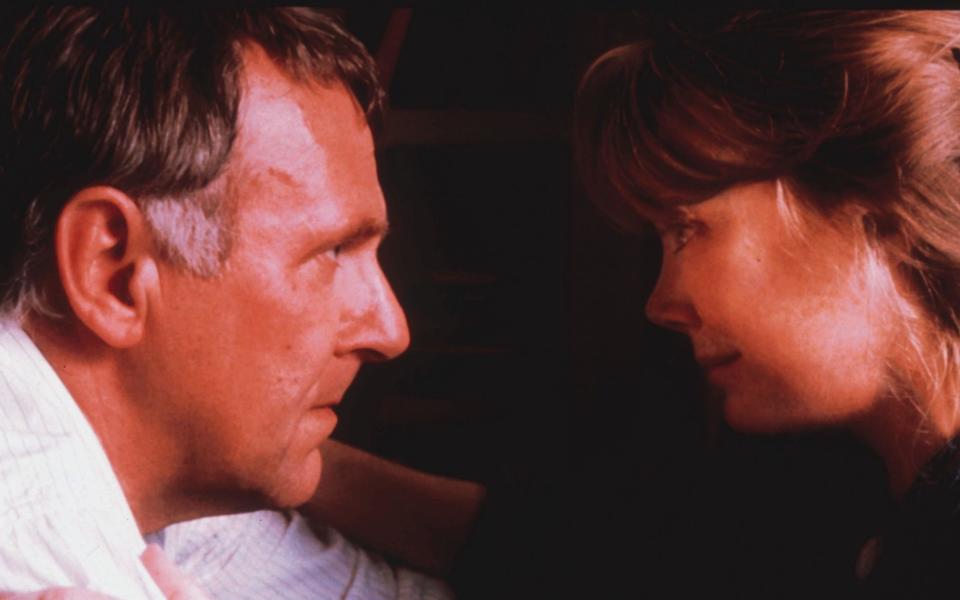From The Full Monty to Michael Clayton: Tom Wilkinson’s best roles

The great Tom Wilkinson has died, at the age of 75, He was seldom the star of the high-profile pictures that he appeared in, but Wilkinson made every single film, television series and play that featured him a better one. A bad project was made watchable whenever he was on screen, a good one was elevated to excellence and a great one was rendered unmissable by this most humane and versatile of actors.
He could convey statesmanlike gravitas, wild hilarity, seething villainy or everyman normality – sometimes all in the same performance – and was a refreshingly down to earth presence offscreen, who kept a low profile and once said “I don’t like doing interviews, and do them very rarely”, on the understandable grounds that “actors always come out sounding stupid.”
Wilkinson was anything but stupid. While the somewhat scattershot nature of the roles he took on, especially towards the end of his career, suggested that he was often drawn to parts because of the handsome cheques that they offered – such roles as a single cameo as the director of the IMF in Mission Impossible: Ghost Protocol were hardly stretching his considerable talent – he was also an endlessly intriguing presence in smaller, quirkier roles.
Perhaps his last really interesting part was also a rare lead, as a bumbling assassin in 2018’s Dead In A Week or Your Money Back, in which he imbued his ageing hitman with pathos and charm to spare. The film was not widely seen, but those who will seek it out now will discover a typically nuanced and rich Wilkinson performance, a world away from his better-known roles in the likes of The Full Monty, Michael Clayton or Shakespeare in Love, but every bit as effective.
Choosing five performances with which to remember Wilkinson is phenomenally tricky. I regret that I can’t include his stern, faintly hapless father, obsessed with university entrance requirements, in Jack Rosenthal’s television films Eskimo Day and Cold Enough for Snow, or his typically impeccable work as Benjamin Franklin in the much-acclaimed miniseries John Adams.
And while his turn as the Marquess of Queensberry in the Oscar Wilde biopic Wilde might be a stock villain, Wilkinson still managed to make him strangely likeable and sympathetic – not least in a memorable dinner scene he has with Stephen Fry’s Wilde, when Queensberry confesses that he, too, writes poetry, and declaims an opening line to a surprised Wilde: “When I am dead, cremate me.”
It is the mark of a truly peerless actor that his very finest work will survive as long as it can still be seen. Here are five brilliant Tom Wilkinson performances that everyone should seek out and savour.
5. Martin Chuzzlewit (1994)
Martin Chuzzlewit isn’t commonly regarded as one of Dickens’s greatest novels, hence a reluctance by screenwriters or producers to adapt it again following this David Lodge-scripted version. It might, however, also be a tacit acknowledgement that this magnificent adaptation could not be improved upon. Yet, amidst a brilliant cast that includes the likes of Paul Schofield, John Mills and a seldom better Keith Allen, it is Wilkinson’s exemplary performance as one of Dickens’s greatest comic characters, the unctuous hypocrite Pecksniff, that stands out.
With his hair raised in what looks like a quiff obtained by means of electric shock, Wilkinson perfectly captures Pecksniff’s toadying, vanity and pomposity, making him both hilarious and loathsome at the same time and doing full justice to his ghastliness. Before Pecksniff – for which he was nominated for a Bafta – Wilkinson was a respected but little-known character actor. Afterwards, the roles became considerably more interesting.
4. The Full Monty (1997)
The recent television series of The Full Monty – which featured Wilkinson’s last on-screen role – did not meet with the same acclaim that Peter Cattaneo’s film received, which saw it, at one point, becoming Britain’s highest-grossing film of all time. In its bittersweet and often uproarious account of a group of hapless and out-of-work steel welders who, almost by accident, become male strippers, it featured a very fine performance by Wilkinson as the former foreman Gerald, whose pride and vanity have led him to conceal his unemployment from his wife.

Whereas many other actors would have turned Gerald into a stock comic type, an authority figure brought down to earth by the indignities and pathos of his situation, Wilkinson not only made him sympathetic and likeable, but demonstrated peerless comic timing that saw him stand out from his co-stars Robert Carlyle and Mark Addy in flashier roles. Deservedly, he won a Bafta for his performance.
3. Shakespeare in Love (1998)
How do you steal the show in a film packed with scene-stealing actors? Well, it’s a tough call, but as the Elizabethan theatrical impresario Hugh Fennyman – who begins the picture thoroughly sceptical about both show business and Shakespeare, and ends it starstruck and thoroughly seduced by the theatre – Wilkinson not only holds his own against the likes of Judi Dench, Geoffrey Rush and Gwyneth Paltrow, but makes every single moment he’s in both hilarious and – a word that often comes up in a discussion of his work – poignant, as we watch this blunt, violent man become enraptured by the possibility of taking part on stage.
By the time he appears, nervously, in the climatic production of Romeo and Juliet in a cameo as the apothecary, proudly wearing an expensive blue velvet cap and jumping over his lines in the excitement of being an actor, it’s as heart-warming and amusing as anything else in the film. His is the first voice we hear in the film, and much as the central romance dominates memories of Shakespeare in Love, Wilkinson’s lovely, subtle work lingers long in recollection, too. He was again nominated for a Bafta, losing out to Rush; the decision could easily have gone the other way.
2. In The Bedroom (2001)
Todd Field has spent much of the last year as the toast of cineastes everywhere thanks to his indelible masterpiece Tár, but it is his first film, the underrated and under-seen In The Bedroom, that audiences should seek out, too. Its magnificent presentation of an affluent upper middle-class family torn apart by tragedy and revenge is not only written and directed by Field with a moral force that approaches the classical simplicity of Ibsen or Racine, but features a central performance by Wilkinson – in a comparatively rare screen leading role, as a successful middle-aged doctor who finds himself reluctantly taking revenge after his son is killed, that is striking in its sheer forcefulness and power.

Wilkinson’s American accents could be variable – his Italian-American Carmine Falcone in Christopher Nolan’s otherwise excellent Batman Begins was cartoonish, to say the least – but here, he conveys all the complexities and ambiguities of a man faced with unimaginable moral choices with consummate skill. He was nominated for an Oscar, losing to Denzel Washington’s flashier work in Training Day; two decades on, it’s clear that, had there been any justice, he should have won.
1. Michael Clayton (2007)
If you were George Clooney, turning in one of your most powerful performances as a morally challenged lawyer in Tony Gilroy’s directorial debut, you might be irritated that the show is thoroughly stolen from you by your co-stars: an Oscar-winning Tilda Swinton as an even more amoral attorney, and Wilkinson as a once-respected lawyer who has suffered a manic breakdown and is now regarded as both unstable and a potential professional liability.
Wilkinson was often an understated and subtle actor, which meant that the opportunity for him to embrace a more dramatic and flamboyant style of performance – all perfectly judged, and complimenting his character perfectly – was one that he seized and attacked with a rare relish. His Arthur Edens is funny, scary, morally complex and – in one of the most chillingly matter-of-fact death scenes ever put on film – utterly heartbreaking. He was nominated for a second Oscar, losing to Javier Bardem in No Country for Old Men: a tough decision, but Wilkinson’s unforgettable work here remains indelible.


